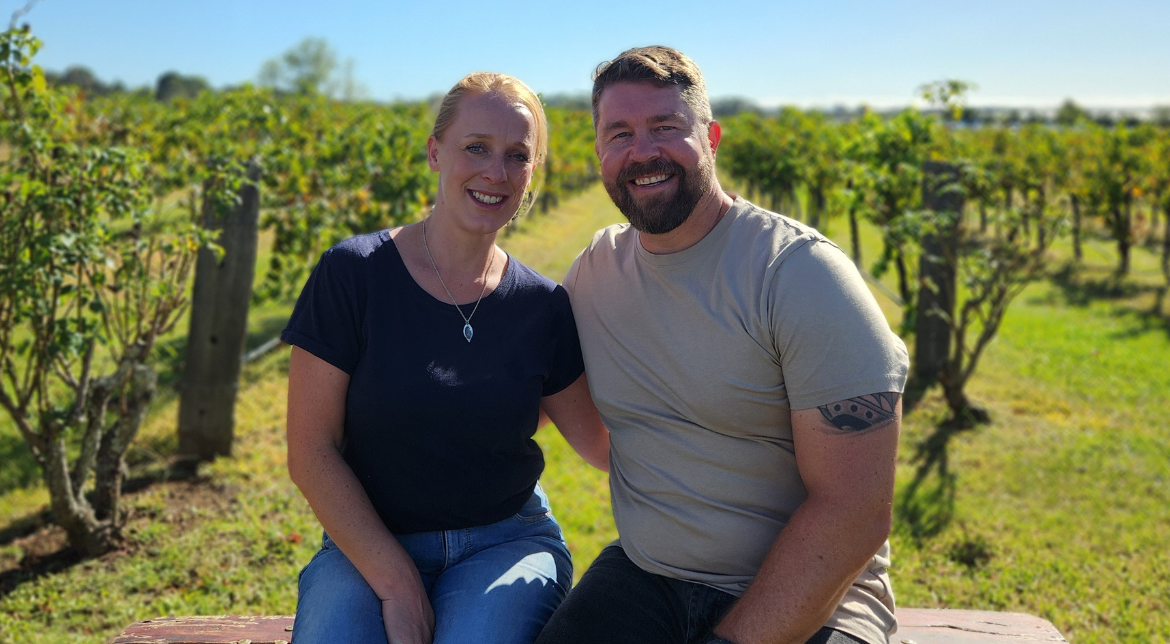
Meet Ashley and Scott
Ashley and Scott, a Queensland-based couple, were drawn to foster care with a strong desire to make a positive impact on the lives of children in need after the challenges brought on by the COVID-19 pandemic.
Through their journey as foster carers, Ashley and Scott have found their own unique way of making a difference, providing respite care and short-term fostering that aligns with their family dynamics and full-time work.
Their warm and caring approach, coupled with their belief in creating a safe and nurturing environment, has shaped their fostering experience and brought a sense of fulfilment to their lives.
We sat down with Ashley and Scott to learn more about their foster care journey.
What first drew you to foster care?
Ashley and Scott had been considering starting their foster care journey but had previously decided to wait until their children were a bit older. However, following the COVID-19 pandemic and the impacts that followed, they knew they had to help.
“Although not directly related to foster care, we knew there was an increase in domestic violence cases at the start of the pandemic, which resulted in more children in care, so knew we had to do our part,” Ashley said.
How did you find the process of becoming foster carers?
“The process of becoming a foster carer really takes time – it took us a year to train, so it’s not like you decide to become a foster carer and take children on the next month," said Scott.
“There is plenty of time to prepare and make the family ready.”
What type of foster care works for you?
Ashley and Scott started with respite care, which they still do, and short-term foster caring. They both work full-time, and due to their son’s needs, this type of care works best for their family.
“Emergency care wasn’t really an option for our family, it was hard to juggle with full-time work and our two young children,” Ashley shared.
“The staff at Life Without Barriers were amazing with our training and gave us good advice, which helped us to decide which type of care we could provide."
“We have one young girl who comes once per month and then some children that come now and again or young people we’ve had once and haven’t seen again.
“It gives full-time carers a break and fits in with our lifestyle and our family.”
Are there any moments from your foster care journey that stand out?
“We cared for a 16-year-old girl last year, which was the oldest we have looked after and worked quite well with our family," said Scott.
“She went from having no one safe in her life to having us full-time plus another carer for respite. She will live with her long-term carer until she’s 18 at the end of the year, and we’ve become friends and stay in contact.
“We know if she has any trouble, they’ll keep in contact, it’s nice to keep that contact and was a bit different for us, as she was meant to stay for one week, but we cared for her for three months.”
How do you feel about the prospect of reunification for the child in your care?
Ashely and Scott have cared for children from home environments that are not safe to return to. However, this does not change Ashley’s strong belief that where safe for the child, it is always the best outcome to see children restored to their parents.
“A lot of the situations we are talking about are people with traumatic backgrounds themselves, so I believe everyone deserves a second chance," said Ashley.
“We don’t want to see any child removed from their parents. We want to see that happy ending and will do all that we can to engage with the parents, if appropriate, and put effort into facilitating contact and building relationships.”
What has influenced the way you approach fostering?
Ashley explains that both she and Scott have led very social lives, meeting a variety of people, with Scott serving in the Navy for 20 years and Ashley with a background in nursing.
Ashley has also had experience with the NDIS and Aged Care sectors, and they both believe in creating a calm environment for their home, utilising the CARE principles in their approach to caring for children.
“We believe in the trauma-informed approach encapsulated by the CARE principles,” Ashley said.
“I don’t like conflict or shouting, it just upsets people and never brings a decent outcome for anyone.
“We try and identify where the trauma came from that is informing the challenging behaviour and create conditions for a positive change in the child’s life."
“The six CARE principles help to inform how we approach any challenges with children to create a safe environment to support children to care for themselves and others.
“We’ve both had life experience, so we come to caring for all children being open and with respect.”
Got more questions?
Our friendly and helpful fostering specialists are ready to answer your questions. Whether you're looking to start the process, get some answers or want more information, our team is waiting for you to connect.